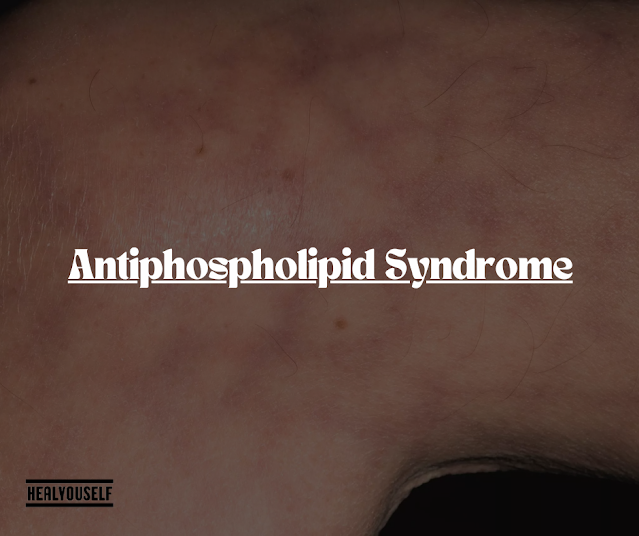Antiphospholipid Syndrome Understanding and Managing This Complex Disorder
What is Antiphospholipid Syndrome?
APS is a systemic autoimmune disease that primarily affects the blood's ability to clot. It can cause blood clots to form in arteries and veins, leading to conditions such as deep vein thrombosis (DVT), stroke, and heart attack. Additionally, APS is associated with pregnancy complications, including recurrent miscarriages, preterm delivery, and severe preeclampsia.
Causes and Risk Factors
The exact cause of APS is unknown, but it is believed to involve a combination of genetic and environmental factors. Some key points include:
- Genetic Predisposition: Individuals with a family history of APS or other autoimmune diseases may have a higher risk.
- Infections: Certain infections, such as syphilis, hepatitis C, and HIV, may trigger the production of antiphospholipid antibodies.
- Medications: Some medications, including hydralazine and quinine, have been linked to the development of APS.
- Other Autoimmune Disorders: APS is often associated with other autoimmune conditions like lupus.
Symptoms of Antiphospholipid Syndrome
The symptoms of APS vary widely depending on the location and severity of the blood clots. Common signs and symptoms include:
- Deep Vein Thrombosis (DVT): Swelling, pain, and redness in the legs.
- Pulmonary Embolism: Shortness of breath, chest pain, and rapid heartbeat.
- Stroke: Sudden numbness, weakness, or paralysis, particularly on one side of the body.
- Pregnancy Complications: Recurrent miscarriages, stillbirths, and other pregnancy-related issues.
- Skin Manifestations: Livedo reticularis, a mottled purplish discoloration of the skin.
Diagnosis of APS
Diagnosing APS involves a combination of clinical evaluation and laboratory tests. Key diagnostic criteria include:
- Clinical Criteria: History of thrombosis or pregnancy complications.
- Laboratory Criteria: Presence of antiphospholipid antibodies detected on at least two occasions, 12 weeks apart. The main types of antibodies tested are lupus anticoagulant, anticardiolipin antibodies, and anti-β2-glycoprotein I antibodies.
Treatment and Management
There is no cure for APS, but the condition can be managed effectively with the right treatment approach. Treatment strategies typically focus on preventing blood clots and managing symptoms.
- Anticoagulants: Blood-thinning medications such as warfarin, heparin, or newer oral anticoagulants (NOACs) are commonly used to prevent clot formation.
- Aspirin: Low-dose aspirin may be prescribed to reduce the risk of blood clots, especially in individuals with mild symptoms or as a preventive measure in high-risk patients.
- Pregnancy Management: Women with APS who are pregnant or planning to become pregnant require close monitoring and may be treated with heparin and low-dose aspirin to reduce the risk of pregnancy complications.
Living with Antiphospholipid Syndrome
Managing APS requires a proactive approach to health and lifestyle. Patients should:
- Follow Medication Regimens: Adhere to prescribed treatments and attend regular medical check-ups.
- Healthy Lifestyle: Maintain a healthy diet, exercise regularly, and avoid smoking to reduce the risk of clot formation.
- Monitor Symptoms: Be vigilant about any signs of blood clots or unusual symptoms and seek medical attention promptly.
Conclusion
Antiphospholipid Syndrome is a complex and potentially serious condition, but with proper diagnosis and management, individuals with APS can lead healthy lives. Understanding the causes, recognizing the symptoms, and adhering to treatment plans are crucial steps in managing this autoimmune disorder. If you suspect you have APS or are experiencing related symptoms, consult a healthcare professional for a thorough evaluation and personalized treatment plan.
Sources:
- Mayo Clinic. (n.d.). Antiphospholipid syndrome. Retrieved from Mayo Clinic
- National Institute of Arthritis and Musculoskeletal and Skin Diseases (NIAMS). (n.d.). Antiphospholipid syndrome. Retrieved from NIAMS
- American College of Rheumatology. (n.d.). Antiphospholipid antibody syndrome. Retrieved from American College of Rheumatology
- John Hopkins Medicine. (n.d.). Antiphospholipid syndrome (APS). Retrieved from John Hopkins Medicine

